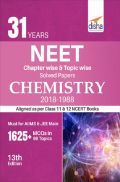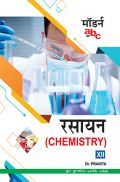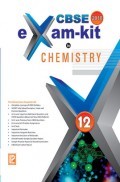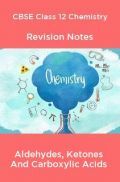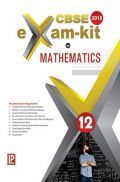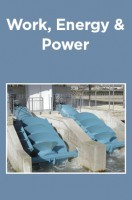Class 12 Chemistry Solved Papers (2008 - 16) cum Revision Handbook with 3 Sample Papers (CBSE) 4th Edition is altogether a new approach for Practicing, Revising and Mastering Chemistry for Class 12 CBSE Board exams. The book is written by India’s most popular author in Chemistry, Dr. O. P. Agarwal. The book covers solutions to the Chemistry questions that appeared in the 2008 - 2016 solved papers of CBSE Board Delhi, All India and Foreign (including their compartment papers) papers.
The book provides a unique and innovative chapterisation and has been divided on the basis of the types of the questions rather than the typical chapter format. Some of the typical chapter names are: What happens when? How will you carry out given conversions? How will you distinguish the following by chemical tests? How will you complete the following? What is the mechanism of the following reactions? Why do the following happen? etc.
The book will be an eye-opener for all class 12 students who will appear in the CBSE board examination.
All India & Delhi 2016 Solved Papers
All India & Delhi 2015 Solved Papers
All India & Delhi 2014 Solved Papers
Part A - Organic
1. What are the IUPAC Names/ Structures of the following compounds?
2. How will you define the given reactions?
3. What happens when?
4. What are the missing compounds/ reagents?
5. How will you carry out given conversions?
6. How will you distinguish the given pair of compounds?
7. What will be the mechanism of the given reactions?
8. Why do the following happen? 9. What is the correct Ascending/Descending order?
10. How to solve the analytical problems?
11. Miscellaneous Questions – Bio molecules, Everyday chemistry and Moral value based questions
PART B - Physical Chemistry
1. Write the definition/example(s)/type(s) of .
2. Why does this happen?
3. What is the role/effect of?
4. How will you differentiate between?
5. Calculation based on formula
6. Numerical based on laws
7. Numericals based on Application/Skill
8. Miscellaneous
PART C - Inorganic Chemistry
1. What are the structures of the following compounds/ions?
2. What is the role of the following?
3. What or which principle is involved in the following processes?
4. Why do the following happens?
5. How you will prepare the following?
6. What happens when
7. Complete the following
8. What is the correct Increasing/Decreasing order?
9. Miscellaneous








